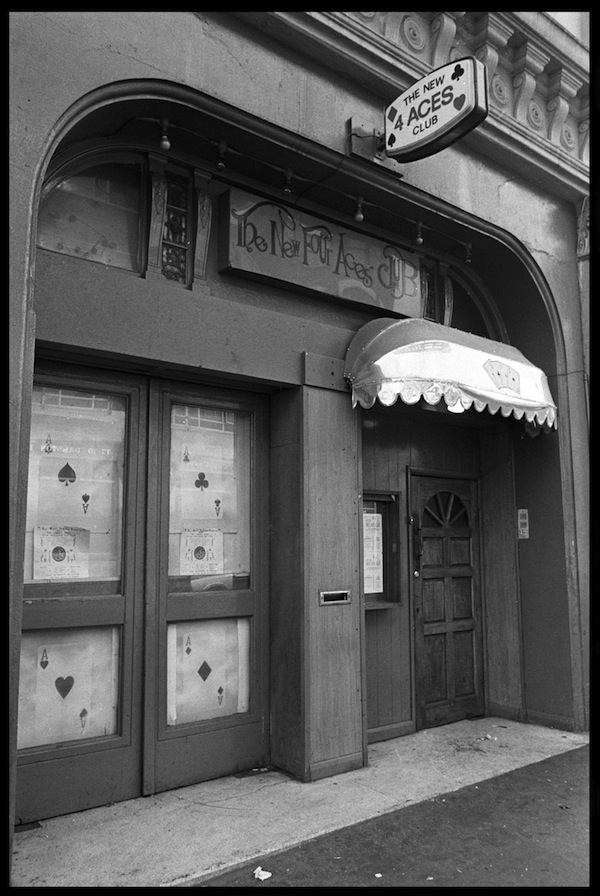Enlarged Lives – an exhibition of feminist related original silk screen posters is now on the walls of Chats Palace bar. Fragile Archivists invited Jess Baines, a researcher and member of See Red Women’s Workshop, to reflect on the experience of the womens movement during the 1980’s. Here is her response.
Collectively and individually these few posters provide wonderfully suggestive clues to some of the feminist and lesbian cultural activity of 1980’s London, as well as to the context in which it took place. Most of this activity had been set in motion a decade earlier as part of the women’s movement desire to come together and unravel the limitations of our own lives, not just through talking and protest, but creatively through writing, image making and performance.

Women’s theatre groups for example had begun forming in the early 1970’s, out of frustration with the dearth of roles for women, even in the growing radical theatre movement. Groups performed, not just as in the posters shown here, at community arts venues and sympathetic theatres but also in women’s refuges and hospitals.

The Women Artists Slide Library, set up in 1976, on the other hand was part of the larger women’s art and feminist art history movements that sought to challenge women’s absence from those fields; the image used in the poster here is from a work by the Italian Baroque female painter Artemisia Gentileschi, Self Portrait as an Allegory of Painting (1690’s).
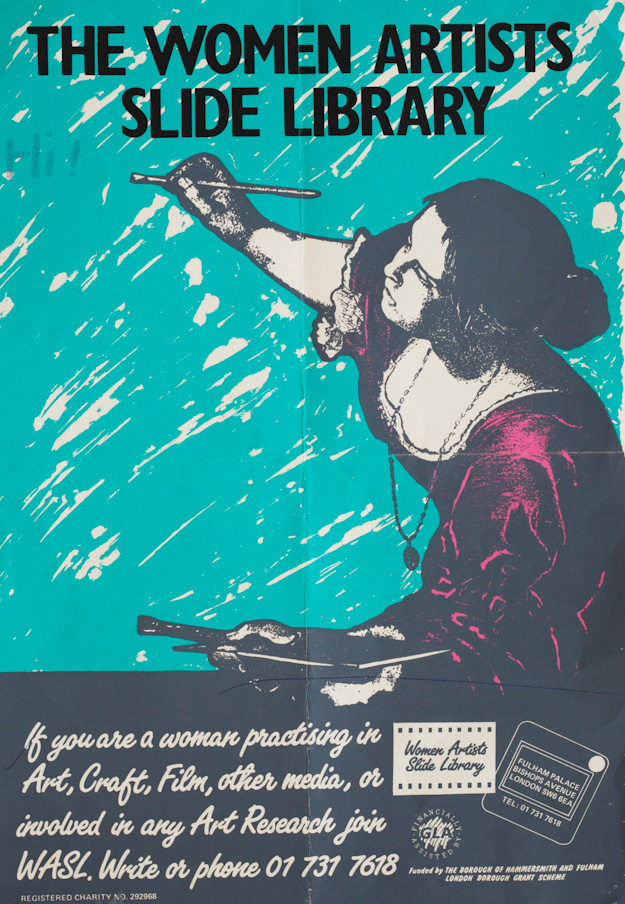
Photography became a crucial medium in recording women’s lives, and led to fascinating explorations in its domestic role, along with a growth of women’s groups, classes and exhibitions. It is hard to imagine now (perhaps) but ‘serious’ photography, because it was considered ‘technical’ was seen as a male domain.

Technical confidence was something Lenthall Road Workshop, the feminist photography and screenprint centre, also aimed to encourage through its classes and ‘skills sharing’ approach. Women only classes gave women and girls the space to muck about and learn without hindrance.

Lenthall Road was also part of the growth of feminist work with young women and girls, hinted at here by the poster they printed for Stoke Newington Girls Festival. Note the activities; motorbikes, self-defence, pool… Not a cupcake class in sight.
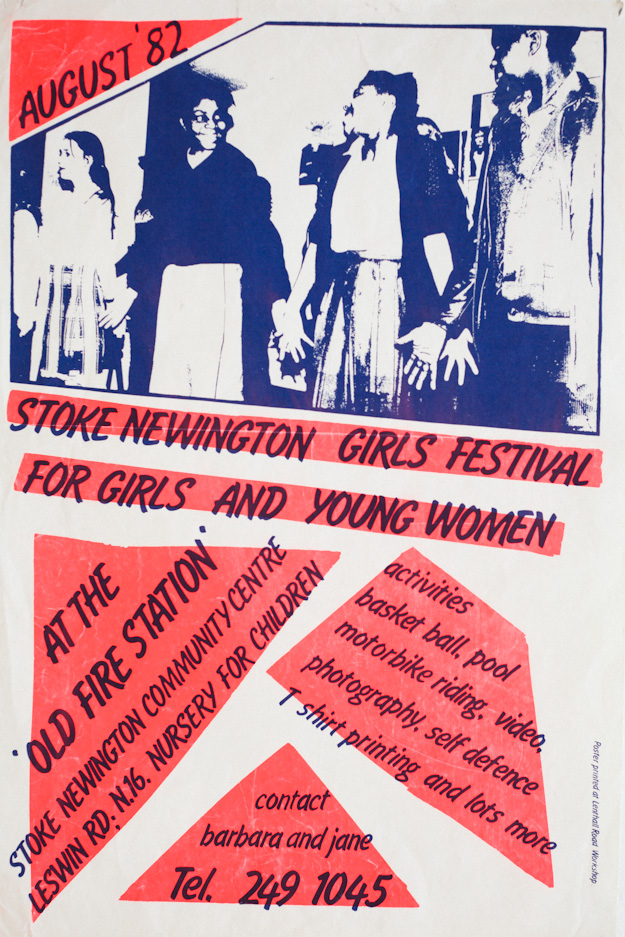
Some of the posters also point to the development of women’s movement discussions and practices around ‘inclusion’. From the lines ‘all women welcome’, and ‘crèche facilities’, to the logo for wheelchair access, and the image of black and white hands on the Lesbian Strength & Gay Pride poster, there are signs of larger movement debates about participation, access and representation.
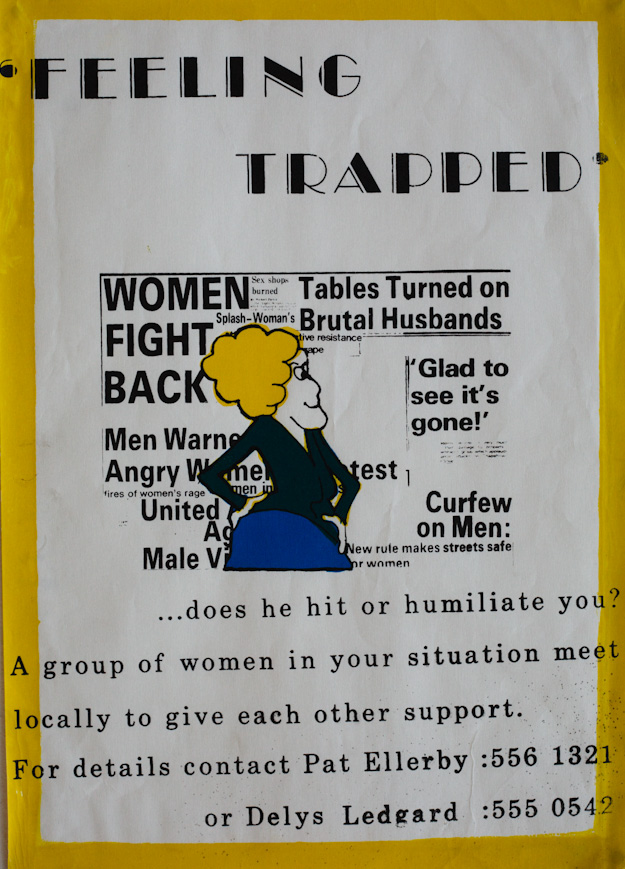
With regard to iconography, it’s interesting that the once ubiquitous ‘women’s symbol’ doesn’t appear at all. Doubled (or tripled for lesbian ‘non-monogamy’), along with the double-headed axe, it had been part of the ‘lesbian symbol’. But on the aforementioned poster it’s the newer black triangle that’s used, adopted in the 1980’s as a counterpart to the pink triangle of gay rights and pride. Digging into the context of this particular poster would open up a 1980’s history of both a separation and coming together of lesbian and gay political and cultural activity. 
Lesbian Strength was the name given to a series of independent marches prior to Gay Pride between 1983-88; the pride marches were felt to be male dominated and lesbians marginalised. But it was also the period when the now famous Lesbians and Gays Support the Miners was formed, the birth of the Greater London Council funded London Lesbian and Gay Centre (LLGC), and the appearance of Lesbian and Gay Units in leftist local authorities which would lead to the infamous Section 28 of 1988 and an important political coalition between lesbians and gay men to fight it. (Many lesbians continued working with gay men in the AIDS/HIV activism of the following years).
The Humanist Party poster included here, ‘Maggie wants your blood’, reminds us that all of this was taking place under the socially conservative right-wing neo-liberal politics of Thatcherism. Thatcher of course presided over a sustained attack on the left, from the dismantling of trade union power to the undermining of the ‘alternative left’, members of whom had helped shape the municipal socialism of the 1980’s and its sympathetic grant giving policies, that as the funding logos show, supported a fair few of the activities here.
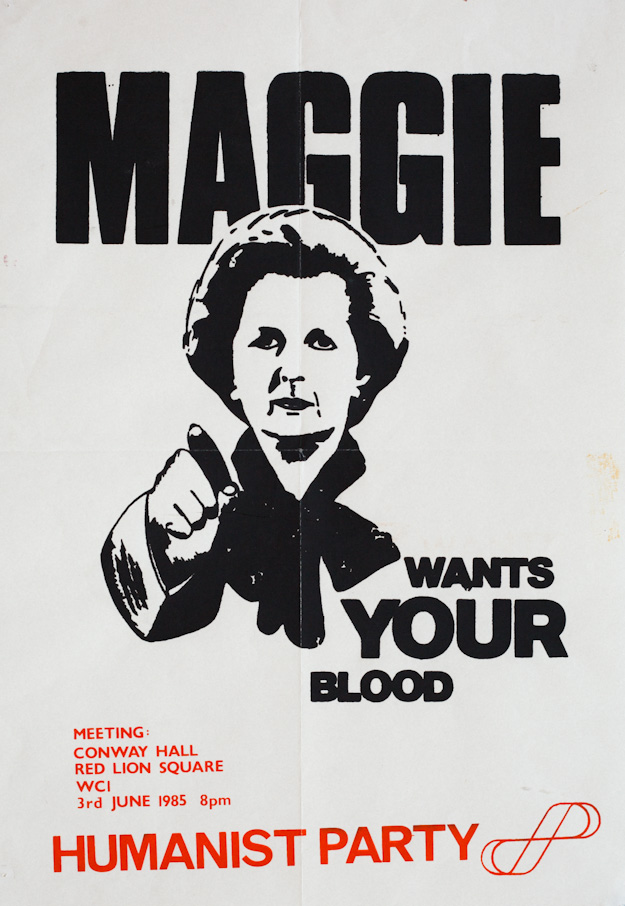
These posters offer a partial snapshot of a moment in the cultural history of the women’s movement, in a complex context of the movement’s own diversification and internal struggles, the hostile climate of 1980’s Britain, and a temporary period of institutional support. Each one of them offers a potential gateway to a rich history of political, social and cultural resistance and creativity in the pursuit of an ‘enlarged life’.
Related Links:




















